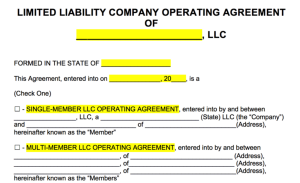Having worked with many entrepreneurs and startups over the years, I’ve heard about all sorts of apps, tips and tools across just about every category of running a small business. Sometimes clients, particularly new companies that are just getting established, ask: are there any basic tools that you might recommend? This question comes in from a range of business owners, from solo practitioners to entrepreneurs with a “virtual office” with a handful of colleagues working from their homes across the country. When you are running a business on a shoestring budget, service subscriptions can get expensive. That said, even the smallest businesses need an arsenal of tools to help run the business efficiently to maximize time and profits. And, as with everything in business, the ROI needs to be there for it all. With smaller businesses, the threshold for trying services that cost something is different than for larger businesses with more resources to experiment and sample more expensive tools.
So, as a fledgling upstart, where do you begin? Here is a list of some popular services and online tools that may help you manage everything from tasks to invoices:
Communications
· Web Presence – Creating a professional web presence without having to hire a team of people is now possible thanks to many online tools such as SquareSpace, which gives you everything from the domain name to the design templates you need to get your site up running quickly, starting at just $ 12 per month after a free trial. A free option would be to begin with the free version of WordPress. You can acquire your domain name through them as well or use one you’ve already purchased from a web hosting company such as HostGator or GoDaddy. Both SquareSpace and WordPress give you the ability to have collaborators post and manage web content.
· Voice, Text and Fax – A business phone number is a fundamental element of a business presence, but one that can also be costly. Subscribing to a business number that routes to your cell phone can be very budget-friendly — mainly because it doesn’t require you to get into contracts with phone companies or get separate business phone systems. There are Web-based services out there that enable a virtual business to turn a collection of iPhones and Androids into a business phone system. Think Google Voice but with business features like extensions that route callers to the cell phones of various colleagues within your business. Examples that start at about $ 12/mo include: Cloud Phone and Grasshopper.

Source: CloudPhone.com
· Team and Chat – Chat can be a huge time (and hence cost) saver when you have a virtual team of colleagues who aren’t sitting next to you in the same room. Tools like Slack (free and paid plans) are great as they allow your internal team communications to be in one place. Hipchat is another great option that’s a standalone chat program and it’s free.
· Video Chat – Google dominates here with Google Hangouts, an easy to use, free online video option for when you need to gather a group for an online presentation or meeting.
Accounting
· Time Tracking, Estimates and Invoices – One neat program is Harvest for keeping tabs on time spent on projects as well as your expenses. It’s also handy for assigning and managing team tasks along with creating estimates and invoices. It integrates with other software like Quickbooks so you can easily send your billable time and expenses to your accountant or bookkeeper, which may be you as well. Harvest also has a feature that allows your clients to pay online with Paypal. Harvest offers a free-mium plan that includes: 1 user, 4 clients and 2 projects. It also offers 3 paid plans called Solo, Basic and Business plans. The Solo Plan starts with 1 user at $ 12 per month.
· Mileage Tracking – Expensing mileage for your business? You can get a free mileage tracker and log, such as Mile IQ. Easy to use and can be important for businesses that have employees in the field, like with sales, cleaners, landscaping, and similar.
· Financial Records – All businesses have accounting needs, ranging from payroll to preparing W2s and 1099s. You can find modern tools that are low-cost alternatives to Quickbooks. One such example is Xero.com. Plans start at $ 6.30 per month. If you’re looking for a free online Quickbooks alternative, Zipbooks is another option.
Productivity
· Capture and Convert – Office Lens trims, enhances, and makes pictures of whiteboards and docs readable. You can use Office Lens to convert images to PDF, Word and PowerPoint files. You can even save images to OneNote or OneDrive. Office Lens has a free mobile app.
· Note Taking – For organizing your notes, check out Evernote. It’s a powerful tool that enables you to use online notebooks to organize notes by client, project, etc. This is a much more efficient way to capture notes from client meetings. You can organize notes across devices as well as share them with team members. Free and paid options available.
· Brainstorming – Tools like Mindly allow you to create useful mind maps when brainstorming or planning to help to give a structure to your thoughts, capture ideas, plan a speech, and take notes. The Mindly app is free for up to the first three maps. After that, you can pay for upgrades within the app, as needed.
· Task Lists — Remember the Milk is a popular to-do list tool that’s everywhere you are: from your phone, to the Web, to your Google apps, and more. Start for free and upgrade to Pro if you find you need more features. And if you need a heavier lifting program to manage tasks for your team, try Wrike. You can use this project management tool to keep track of and assign all of your team’s tasks including chat messages related to specific tasks. Start for free for up to five users and a simple task list.
· File Sharing and Collaboration – For file sharing and online collaboration of documents, check out the free to use Microsoft Word, Excel and Powerpoint online apps (skip paying for Office 365 until you need to!) Microsoft OneDrive is worth a look as an alternative to Google Drive to keep your files easily accessible and shareable for its compatibility with the online Microsoft Office apps.
Sales and Marketing
· Online and Social – Hootsuite is a free tool for a single user to help organize your social media content. And if you need more features and the ability to track all mentions online try Mention.com. The free version allows you keep track of up to a small number of mentions per month based on your defined set of keywords – it will also email you daily summarizing those mentions. The solo plan starts at $ 29/month for 2 alerts, 3,000 mentions and one user. Google Alerts is another free tool to monitor company brand mentions, competitor news, key industry terms, client names, and more.
· Email Marketing – It’s hard to escape the need to send customer emails, whether it’s for marketing or account related purposes. And as a new or small business you want to not only represent your business professionally, but also you need the ability to schedule, track and review performance of your email campaigns. There are many tools out there, a commonly used option is MailChimp, which offers a free plan and great plugins and forms to incorporate on your website for initiatives such as newsletter signups.
· Customer and Lead Management – A popular tool for many businesses large and small these days is HubSpot — while their marketing tools may still be over budget for the smallest of businesses, their free CRM tool represents a huge opportunity to help consultants track and manage leads. As your business grows you may find you need additional features or services, but this should serve as a good starting point for smaller businesses.
IT Management
While I don’t want to get too carried away here, you may consider online tools for data backup to make sure that your company information is secure and compliant, especially if you have multiple computers and remote workers – something like Carbonite. Beyond keeping computers up to date, keeping data safe and backed up is a responsibility that rests with your business. Less of a concern if you’re using Google Drive or Microsoft One Drive to organize files, but think about HIPAA or other types of compliance as well, as relevant to your business.
When it comes to choosing the right tools for your small consultancy or business, there isn’t a one size fits all approach. Several factors come into play, including whether or not you have staff whose time and tasks you need to manage, as well as the industry and type of work that you perform. For example a freelance consultant who works mostly independently and only occasionally hires additional staff may not need to worry about sophisticated project management tools that track time and assign tasks. On the other hand, if you have projects that you are managing for your clients, which do require you to manage complex projects, you may need to put more thought into those tools. The same holds true for accounting, billing and invoicing. Take the time to understand your business and your unique needs. Rest easy knowing though that thanks to widely available online tools and apps you can easily create a foundation to run your business for less than you likely spend on your daily coffee habit.
Business & Finance Articles on Business 2 Community(70)








